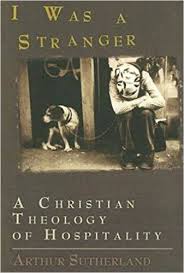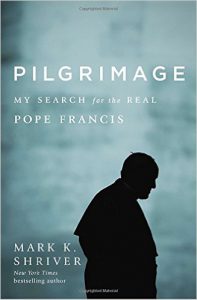Fr. Brown's 2017 Reading List

I Was A Stranger: A Christian Theology of Hospitality
Arthur Sutherland places before us our fear of meeting the “other” and the “stranger” in an increasingly global, and frequently dangerous, village. Various social, political, and historical factors have conspired to leave us in a veritable crisis: the decline of hospitality.
Why is this a crisis? Why should we practice hospitality? What is it about Christian theology that compels us to think about hospitality in the first place? Sutherland offers a passionate plea to recover and rediscover hospitality, and to respond to the divine appeal to welcome the stranger.
Therein lies the central concern of the book: that hospitality is not simply the practice of a virtue but is integral to the very nature of Christianity’s position toward God, self, and the world—it is at the very center of what it means to be a Christian and to think theologically. He offers a challenging definition of hospitality and calls us to a practice that is the virtue by which the church stands or falls.
Drawing on modern theologians (including Howard Thurman, Dietrich Bonhoeffer, Karl Barth, Martin Luther King Jr., and Letty Russell) and considering American slavery, the Holocaust, feminism, and prisons, Sutherland eloquently presents a Christian theology of hospitality.
Writing Our Way Out: Memoirs from Jail
 Detailing the formative and transformative memories of ten men, Writing Our Way Out
is the creative culmination of a writing class that began in the Richmond City Jail
in Virginia, and grew into a journey to re-entry. Compiled in a narrative by their
teacher, Dr. David Coogan, these stories explore the conditions, traps, and turning
points on the path to imprisonment in modern America, as well as the redemptive and
rehabilitative power of memoir.
Detailing the formative and transformative memories of ten men, Writing Our Way Out
is the creative culmination of a writing class that began in the Richmond City Jail
in Virginia, and grew into a journey to re-entry. Compiled in a narrative by their
teacher, Dr. David Coogan, these stories explore the conditions, traps, and turning
points on the path to imprisonment in modern America, as well as the redemptive and
rehabilitative power of memoir.
Pilgrimage: My Search for the Real Pope Francis
A down-to-earth and deeply intimate portrait of Pope Francis and his faith, based on interviews with the men and women who knew him simply as Jorge Mario Bergoglio.

Early on the evening of March 13, 2013, the newly elected Pope Francis stepped out onto the balcony of St. Peter’s Basilica and did something remarkable: Before he imparted his blessing to the crowd, he asked the crowd to bless him, then bowed low to receive this grace. In the days that followed, Mark K. Shriver—along with the rest of the world—was astonished to see a pope who paid his own hotel bill, eschewed limousines, and made his home in a suite of austere rooms in a Vatican guesthouse rather than the grand papal apartment in the Apostolic Palace. By setting an example of humility and accessibility, Francis breathed new life into the Catholic Church, attracting the admiration of Catholics and non-Catholics alike.
In Pilgrimage, Shriver retraces Francis’s personal journey, revealing the origins of his open, unpretentious style and explaining how it revitalized Shriver’s own faith and renewed his commitment to the Church. To help us understand how Jorge Mario Bergoglio became Pope Francis, Shriver travels to Bergoglio’s native Argentina to meet with the people who knew him as a child, as a young Jesuit priest, and as a reformist bishop. Shriver visits the confessional where Bergoglio first felt called to a faith-based life and takes us to the humble parish where the future pontiff’s pastoral career began: in a church created from a converted vegetable shed in an area just outside the city of Buenos Aires. In these impoverished surroundings, Bergoglio answered Christ’s call to feed the hungry, clothe the naked, and shelter the homeless, following the example set by his papal namesake, St. Francis of Assisi.
In this deeply reported yet highly personal book, Mark K. Shriver explores how Francis’s commitment has struck a chord in the hearts of millions who long to make faith, love, humility, and mercy part of their lives as they go out into the world to serve and learn from the most marginalized.